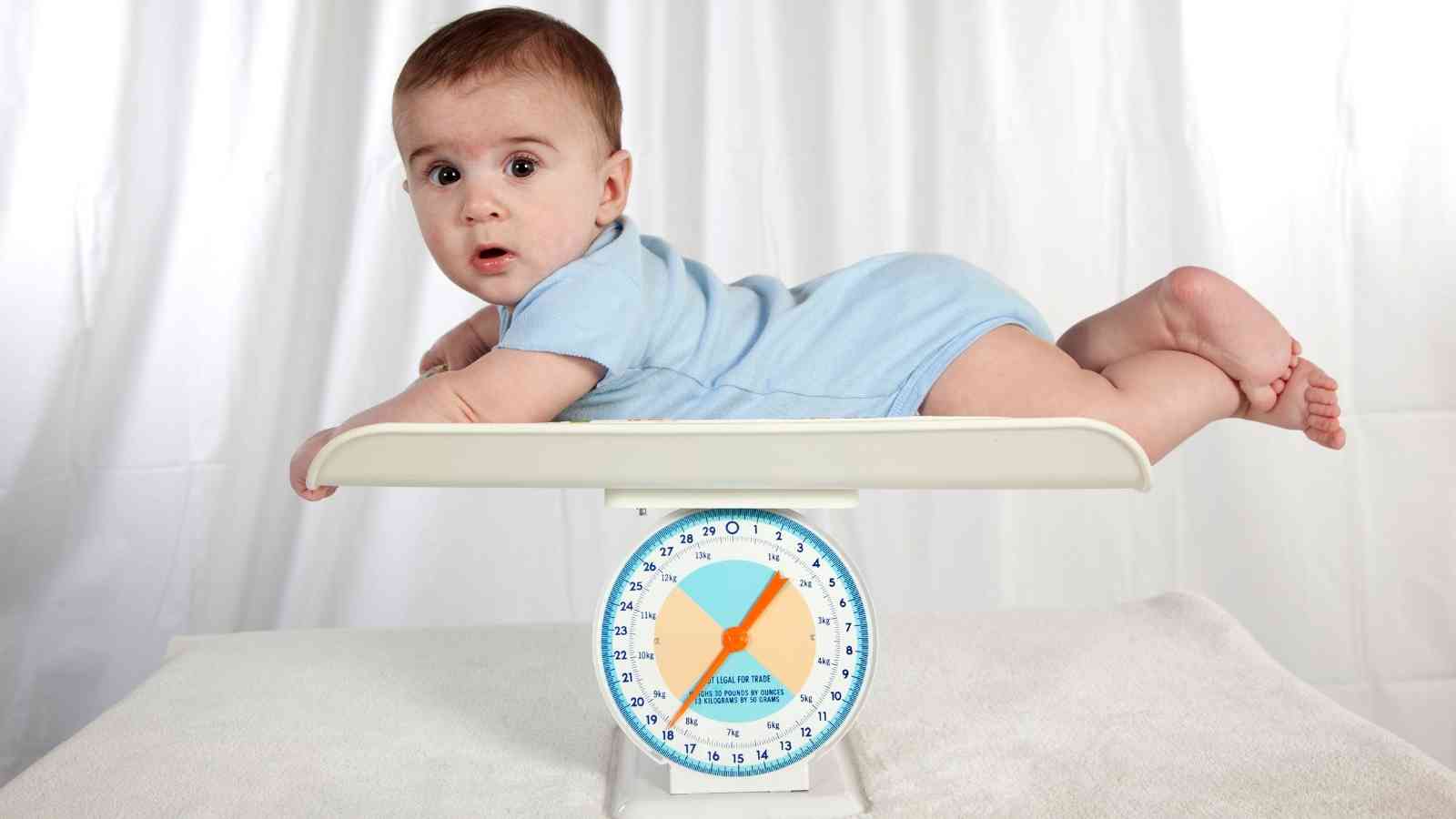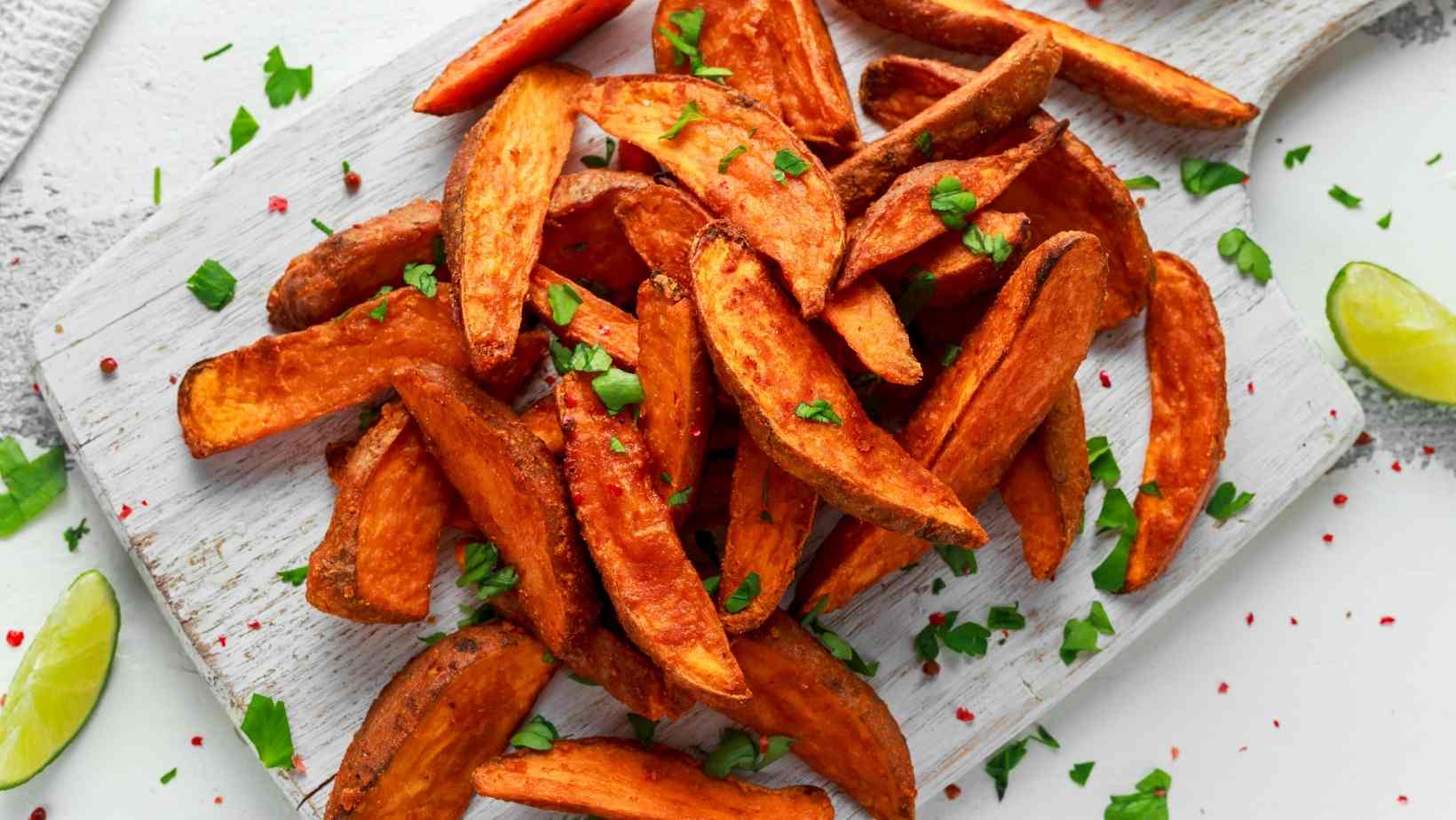While most Indian moms are concerned about their children's weight increase, it's vital to remember that the goal should be to offer a balanced diet that gives your kid all the nourishment she needs to develop and be healthy. This will naturally assist the infant in achieving a healthy weight. Provide your kid with three nutritious, well-balanced meals every day, as well as healthy snacks in between. A diversified diet also ensures that she receives enough nutrients, vitamins, and minerals for her brain and body to grow properly.

How to Help Children Gain Weight
Some children just do not appear to gain weight, which might be due to a variety of factors. One factor is the underweight child's parents' genetic make-up. If the mother and father are both slim, the kid may have comparable physical characteristics. Metabolism has a role in a child's weight increase trend as well. If your kid is otherwise active and healthy, she will reach the age-appropriate weight milestone.
Consider maintaining a food journal for your kid and noting likes, dislikes, preferences, and allergies, as well as planning weekly menus to keep mealtimes enjoyable and tantrum-free. Here are some suggestions to help your kid gain weight:
Ensure that the youngster receives enough exercise and participates in physical activities to maintain a healthy appetite.
Instead of focusing just on weight growth, focus on delivering a healthy, well-balanced, and nutritious diet.
Introduce the youngster to sports such as swimming, cycling, and other activities as she matures. Active engagement in sports will help her enhance her body as well as work up an appetite.
Why is it so important for your child to eat a balanced diet?
The first few years of a child's life are critical for establishing appropriate dietary habits. Healthy eating habits that are instilled in your kid at a young age are more likely to stick with her throughout her life. As she gets older, it will also mean fewer conflicts and cranky expressions at mealtimes. When you're traveling or dining out, it'll make your life easier. At this point, you must pick whether she should develop a taste for junk food or fruits and vegetables - of course, we know what you would want your kid to eat! Aside from eating well, you should make sure that your children are active and have plenty of opportunities to play, particularly outside in the sun. This boosts immunity and cuts down on medical visits.
Weight Gain in Children, Broken Down by Age
The pattern of weight increase varies from one infant to the next, and there is no way to compare them. Doctors, on the other hand, utilize a weight chart based on the average weight of Indian infants. Your child's weight should be in a range close to that suggested by the chart if she follows the trend. Parents should use this chart as a broad guideline only, and remember that the paediatrician's opinion is the best for any particular needs your kid may have.
1. Infants aged 0 to 12 months
In the first several months of life, your kid will grow up quickly. Your baby will gain weight and grow taller every month. You'll be shopping for clothing on a regular basis. Ensure that your kid gets enough sleep and is adequately nourished, as well as ensuring he or she is vaccinated on time and has frequent check-ups. The infant should be nursed exclusively for the first six months of her life, then gradually introduced to other liquids or semi-solid meals while still being provided breast milk. By 4–6 months of age, the infant should have doubled her birth weight.
2. 12 to 36 months old toddler
This is a busy time in your baby's life, and a lot of emotional and social development takes place at this time. Your youngster will begin to explore the world and will be exposed to other children at daycare or on walks around the neighborhood with you. Immunity and eating habits developed in the first year will be even more crucial now. The weighing scales will display swings due to a variety of causes, including emotional state of mind, separation anxiety, new locations, and dietary and eating habits changes.

3. Preschoolers (ages 4 to 6)
At this age, the traits, habits, and other developmental elements that the kid develops will endure a lifetime. Your preschooler's busy schedules and active lifestyle will need a higher calorie intake and a wider range of healthful foods. She will gain roughly 2 kg every year on average.
4. Children aged 7 to 12
Your child's dietary needs will grow as she advances from preschool to preteenhood, and her weight gain will stabilize. During this time, she'll acquire roughly 3 kg every year. She will eat the same foods as the rest of the family at this age.
Weight Gaining Foods for Babies and Toddlers
Parents must consider the dietary needs of their children when preparing meals for newborns and toddlers. Children must eat a well-balanced diet that includes enough nutritious calories. Parents must also make mealtimes exciting for their children so that they look forward to them and do not become picky eaters.
Some parents offer sugary sweets to their newborns to help them gain weight; however, this is harmful and can ultimately do more damage than good to your kid. There are a variety of healthful solutions available to help your kid gain weight. Here are some of the greatest meals to feed your baby or toddler to help them gain weight:
1. Breast Milk
Let's begin with the most apparent recommendation: give your infant breast milk! It is advised that an infant be nursed exclusively for the first six months following delivery. This is the most nutrient-dense, readily digested, well-balanced, and healthy superfood you can give your kid to boost his or her immunity for the rest of their lives. It also helps to strengthen the mother-child attachment. Your baby is receiving enough breast milk if she is active, appears healthy, has no allergies, passes 4-6 stools per day, and wets 6-8 diapers. You may start introducing liquids and semi-solid meals to your baby's diet after 6 months, in addition to breast milk.
2. Bananas
Potassium, Vitamin C, Vitamin B6, and carbs are all abundant in this fruit. It's also high in calories, so it's a good meal for your baby to consume if he's trying to gain weight. Bananas may be mashed or blended into a smoothie or shake. Steamed Kerala bananas are delicious when mashed and given to newborns. It may be packed in your baby's luggage for travel and serves as a simple snack.
3. Sweet Potatoes
Boiling and mashing sweet potatoes is simple. They're delicious, nutritious, simple to digest, and good for you. They're also high in Vitamin A, Vitamin C, Vitamin B6, copper, phosphorus, potassium, and manganese, all of which are essential minerals for children's weight increase.

Sweet potatoes are high in dietary fiber as well. This vegetable may be used to produce delicious purees and soups.
4. Pulses
Pulses are nutrient-dense. Protein, magnesium, calcium, iron, fiber, and potassium are all abundant in them. After 6 months, you may start introducing dals in the form of soup or daal paani, one of the most popular weight-gain beverages for kids.
You may also feed khichadi that has been well-mashed. Moong daal is a baby-friendly alternative since it is readily digested. To make a healthful and fiber-rich meal, combine pulses with rice and/or veggies.
It's a good idea to start introducing different flavors and textures to your kid around the age of 7–9. Begin with semi-solid, chunky, and mashed foods. You may start offering your infant homemade porridge or ready-to-eat cereals from the store. You can sun-dry daal, millets, lentils, and rice to make your own cereals. After that, lightly roast them before grinding them in the mixer. Prepare a variety of powders and keep them in labeled bottles for easy meal prep. Use as and when necessary.
5. Ragi
This superfood, also known as finger millet or 'nachani,' is excellent for weight growth and infant development. It's high in dietary fiber, calcium, iron, protein, and a variety of vitamins and minerals.
It is readily digested and may be given to newborns as idlis, dosas, porridge, malt, or cereals. Toddlers may enjoy the same treats in the shape of their favorite cakes, cookies, and puddings (all of which have been made healthier!).




